Blue Prince review
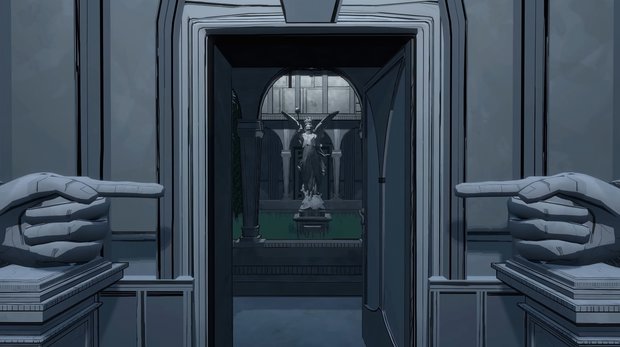
- 10 Comments
Defying easy classification, this utterly unique, addictive, ambitiously constructed indie adventure totally rules!
Folks, I am sitting to write this review in what can only be called the “afterglow” of Blue Prince and I find I am at a loss for words. I will simply have to move forward, unaware of what’s coming next and construct this as I go, which is fitting because the same method I’ll be using to describe this astounding puzzle box of a game also describes the gameplay of Tonda Ros and Dogubomb’s masterpiece. Though this is the indie developer’s first journey into the video game design mansion, the treasures contained within left me truly amazed.
Let me explain:
Blue Prince is a puzzle game in which you have to collect items and clues in rooms of a mansion to solve puzzles and find secrets in other rooms of the mansion, all in the service of– No, that’s not quite right.
Blue Prince is a digital board game about strategically placing randomly drawn room tiles on a blueprint so that you can make it from the entrance of a mansion to your final destination, Room 46, by lining up the doorways and– No, that’s not it either.
Blue Prince is a roguelite first-person exploration game, in which you play a young man named Simon who has just inherited his uncle’s mansion, Mt. Holly, provided he can find the elusive Room 46. His progress resets every day, but he keeps the knowledge he’s gained about the mansion, its secrets, and his…
Ugh. This is going to be impossible, because Blue Prince is all of those things and more, tied together brilliantly in a wonderful enigma of mystery and intrigue.
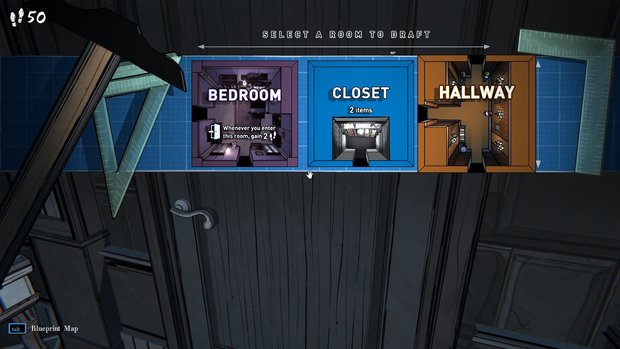
You begin every in-game day in the entrance hall of Mt. Holly with three closed doors in front of you. You possess a blueprint with 45 spaces, each waiting to be filled, but every day the layout of the mansion starts out completely blank. When you select a door, three randomly drawn rooms will pop up on your “Drafting Board.” Each room has different benefits, such as resources and features that will help you as you progress and may open in any available direction or none at all. Your drafting board will show you a layout of each room so you’ll know which directions its exits lead. To help you choose, it will also offer a description of the benefits of the rooms, such as a Closet, which always contains two random items, or a Bedroom that will increase your daily allotted moves whenever you enter it. You pick the one of three rooms that you think will best help you get further into the mansion, and that room will now appear in that space on the blueprint for the rest of the day.
When choosing your rooms, you have to be mindful of your “steps” – you have only 50 each day, you use one every time you enter a new room, and your day is over when you reach zero. Some rooms cost gems to draft, which may appear randomly in certain rooms (or be guaranteed in specific rooms and spots) and some doors are locked, requiring keys, which are also a resource you must search for as you go.
Lastly, there are items scattered throughout the mansion that will help overcome particular obstacles (a shovel digs in a dirt spot, while a sledgehammer saves you a key when you find a locked chest as you smash the lock to pieces), and some rooms provide solutions to certain puzzles (you may need to find a room with a circuit breaker before being able to use a room that needs power.) Some items are more likely to appear in certain types of rooms – a sleep mask might appear more often in bedrooms, for example – and some rooms are guaranteed to have items whose appearance is largely random. You may go through an entire run never finding the exact thing you want or need.
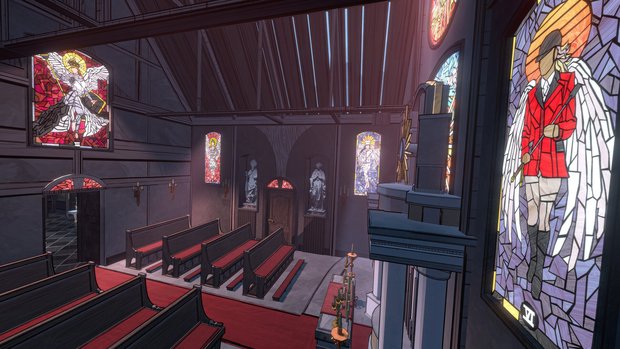
Your day will end automatically if you run out of steps, but you may also end it at any time. This will be something you might need to do if you draft yourself into a dead end by running out of keys and finding all your free doors to be locked, or by ending up with no doorways facing open tiles, thus leaving you with nowhere to go. Ending the day will start the next day immediately, completely resetting your progress with no resources, 50 steps, and an empty mansion with a newly randomized layout – unless you happen to find some permanent bonuses as you get further into the game.
This loop – wake up, draft rooms to get through the map, collect items and solve puzzles as you go, exhaust your resources, sleep, start over – can be immensely satisfying when you have a good run where you make it far along and unlock new secrets or find new rooms, but potentially frustrating when you have a bad run, like failing to get very far or achieve something you’re trying to achieve. Reaching Room 46 might not even be possible on some runs, I imagine, based on the luck of the draw. However, the key to each day is not necessarily to focus on making it to the end, but to gain knowledge. Like a good roguelite (or a good “metroidbrainia,” as games like Animal Well or Outer Wilds are sometimes called), any day where you learn anything new about the mansion is a good day, and that knowledge can be used on future runs.
All this is only scratching the surface of the gameplay, as new layers and considerations emerge as you go. Pairing rooms for added effects, room color categories, crafting new tools, decoding secret messages – to describe them all would be exhausting and best left to players to find for themselves anyway. To be honest, as I’ve just found the fabled 46th room and I’m looking at how many unsolved puzzles and questions are still lurking in my notebook, I think even finishing the game might just be scratching the surface.
There seems to be almost an infinite complexity to this game, as your room choices are drawn randomly and there are more possible rooms than spaces in the mansion, so no two runs will ever be the same. The blend of genres (adventure, puzzle, narrative game, strategy, virtual board game, “metroidbrania,” roguelite) creates an environment where there is always so much to do, you never feel like you’re treading the same ground over and over again.
Even though some actions may need to be repeated in multiple runs, the game considers your experience by making self-contained puzzles more complex each time you encounter them, like a math-based brain teaser that continues to add new functions, or by including little quality-of-life features, such as a button that lets you automatically input the last password you used on a computer.
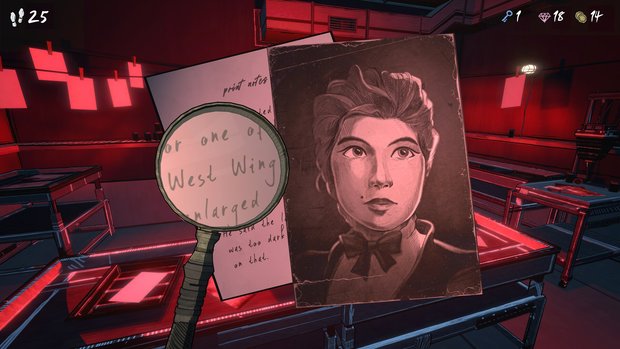
Aside from this incredibly satisfying and challenging loop of making your way through the mansion each day, the game is just bursting at the seams with secrets and stories that are not immediately apparent. While pursuing some of these mysteries, there are goals you might pursue in one run that are totally separate from seeing Room 46. You might find a letter that hints at some potential family treachery, and you may want to follow that thread by looking for more letters in rooms relating to that story or that person. You could find a statue in an odd position and start to wonder about others you’ve seen, trying to draft all the rooms you remember seeing statues in on previous runs to discover if there’s a connection. Perhaps you find a note on a table that makes you revisit every single room you’ve been to before to see some secret that was hiding in plain sight all along. Linking together solutions to small mysteries helps you solve deeper, more intricate mysteries, making your triumphs feel intensely rewarding and giving you the sense that you’re an absolute genius.
You may pass through the same rooms on many different days, but the cel-shaded environments are so full of character and detail that you’re likely to find something new to catch your attention each time you pass through. The dull grays of the abandoned mansion are tinged with bright colors that will draw your eye to the most interesting things. And each room is lovingly designed, meant to evoke the warm coziness of a childhood bedroom or the antiseptic dreariness of an office conference room. Passing through a cramped wood-paneled hallway into the open sun-lit greens of a courtyard, and then into the dank muddy browns of a cellar will constantly stir your senses and leave you awed.
The game also knows just when to fade in its brilliant soundtrack, composed by Trigg & Gusset, for maximum effect. The cello-and-synth opening song each morning creates an ominous atmosphere with just a tinge of anticipation, while the pianos and woodwinds that play when you find yourself exploring some new, mysterious location punctuate the excitement of the moment yet tickle that part of your brain that’s just a little nervous about what you might find.
The atmosphere in is also tone-perfect, evoking the loneliness and the mystery of exploration. Most of the time, your wanderings are marked by the sounds of your footsteps echoing off the walls of each empty room, interrupted only when you find a gem or turn a key in a door. The low hum of electricity in a garage or the soft rustling of leaves in the wind as you pass through a courtyard may give you that chill that runs down your arm when you enter an abandoned building – the feeling of being completely alone, and the possibilities of discovery clashing with the anxiety of the unknown.
The story of family secrets, political intrigue, and the power of legacy that unravels throughout the initial 5-10 hours of Blue Prince is surprising, touching, and packed full of mystery that you just won’t be able to wait to unravel. Told as much through its cutscenes, notes, and in-game books as it is through the environments and gameplay itself, the game had me gasping in amazement when the secrets of Room 46 were finally revealed. More than that, though, the mysteries still left to unravel will have me playing this game for another 50 hours at least. (To pull back the curtain, I started this review at 12 hours when I rolled credits, and as of now I’m at 40 hours with no signs of slowing down.)
Final Verdict
It's rare to see a game that has this much creative ambition and achieves seemingly everything it sets out to do. Blue Prince is like nothing I’ve ever played, and when I’m not actively attempting one more run (which is never just one more run), I’m thinking about its puzzles, its mysteries and new ideas to try. In refusing to be shoved into any predetermined genre boundaries, Dogubomb has created a truly phenomenal game that everyone owes it to themselves to play.
Hot take
Blue Prince took my breath away more times than I could count. Its brilliant mix of genres, intricate puzzles, addictive loop, emotional story, and fascinating setting all work together in harmony to create an absolute classic.
Pros
- Incredibly creative blend of genres makes the gameplay both complex and addictive
- Deep, intricate puzzles present a challenge and evoke a feeling of discovery
- Moving, complex story unfolds in layers
- Beautiful cel-shaded art hits all the right moods
- Smart soundtrack punctuates important moments with emotion
- Rich post-game optional content will keep you coming back for more
Cons
- Randomly generated rooms and looping structure may make the game difficult or frustrating for some
Matt played Blue Prince on PC using a review code provided by the game's developer.


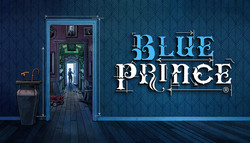
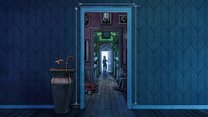



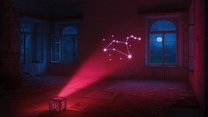
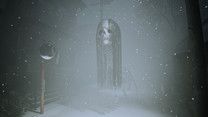
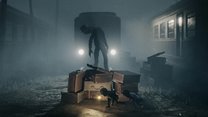
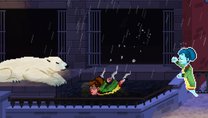
10 Comments
Want to join the discussion? Leave a comment as guest, sign in or register in our forums.
Looks very interesting indeed, but I fear I might be part of the "some" in your con 😜 Though I guess I'll only know for sure when I try...
Reply
This reviewer is overselling it by a good margin. It's an interesting game alright, but it's nothing close to what the reviewer is making it out to be. Most of the first 5 hours I played I was simply trying to figure out what I'm supposed to be doing which is fun, but once you do sort of get the hang of what you are trying to do the game starts throwing road blocks at you are every turn and you'll find more often than not you're at the mercy of the RNG and will have to cut runs short simply because you're missing a key or gem or whatever. It's sheer luck if you make it to room 46 for the most part. Sure there's some skill involved, but it'a 10% of the game, the rest is just pure luck.
Reply
Tell me you haven't progressed enough without telling me you haven't progressed far enough... Maybe try taking some notes and following things up... Oh and ofc, git gud
Reply
Looks terrible to me. It's funny how adventure game reviewers always gives these games an overblown score. This is not one of the best games of ALL TIME, yet you scored it like that
Reply
I think you should give it another go. This game just gets better and better the more you play and unlock. On day 70 and yes some of the RNG is frustrating but I am almost always accomplishing something on a run.
Reply
I have been having a laugh looking at all the negative reviews of this game, because they're almost entirely 'nah, the RNG hits too hard and blocks you'. Sure, if you have decided on a singular goal and refuse to look at anything else until you complete that goal. But if you actually open your eyes, make notes, and look at everything about a room when you enter, you'll find so many things. Pretty much EVERYTHING in this game is a clue in some way. And I truly mean everything. You'll get runs where you have to cut them short because of the RNG or lack of gems or whatever, sure. But DURING those runs you'll also find more clues about puzzles, safes, or a bunch of other things I'm not gonna spoil! Seriously, I cannot stress enough how brilliant this game is. But you HAVE to take notes and look at everything, or you're going to think it's poorly thought out (which could not be further from the truth).
Reply
Im 50 hours in and im completely sick of it. Theres such a lot of cool design in this game! But id be curious to know if you still feel like its 10/10 upon reaching the true end. Because i cannot bring myself to finish it. There are many tedious elements that get magnified as youre trying to sort out the end game.
Reply
Completely agree. The RNG aspect serves the game well until you hit credits, then, as the number of possible goals decreases, becomes a massive irritation. This, coupled with the lack of QOL features (not being able to access notes and books that you have seen before is a big one) have killed the game for me and I've given up. I think the game would be much better if it just removed the RNG after credits and allowed you to lay out the mansion as you like. It discourages experimentation if it may take me 1-2 hours to test a simple hunch about a puzzle solution.
Reply
I strongly felt the 10/10 score was warranted until I progressed decently far into the post-room 46 content. The more your objectives shrink, the more likely you will have runs that have zero real progression. I'm certain there are some hyper dedicated players who will unravel all of the estate's mysteries without referring to guides, but we're talking about .1% of the player base. Just testing a theory in the late game could take several hours to have the setup you need. Vaguely worded clues and outright red herrings are fair game in puzzle box games; when these things become an issue, though, is if you cannot easily or quickly test your hypotheses. Blue Prince unfortunately becomes quite a frustrating experience after a certain point no matter how you slice it, except for, probably, a select few. Yes, I took tons of notes. Yes, I took hundreds of screenshots. Still, I say the end game falls apart for an averagely astute, or even above averagely astute, adventure gamer. I still consider Blue Prince a masterpiece of sorts, albeit a flawed one. Most players who refuse to look up solutions will quit the game at some point with heaps of unexplained mysteries still swirling about. Huge respect to the developer for their uncompromising artistic vision. Just be forewarned, you may well quit the game after 100 hours, like I did, with very mixed feelings indeed.
Reply
What a glowing (and well-deserved) review of Blue Prince! The way it keeps reshuffling the mansion every run while still making narrative progress feel meaningful is pure genius; it’s like rogue-like mechanics and puzzle-box storytelling had a perfect baby. That constant “just one more room” pull is dangerous for sleep schedules!
Reply
Leave a comment